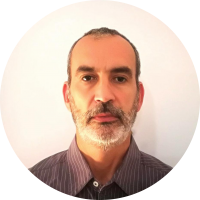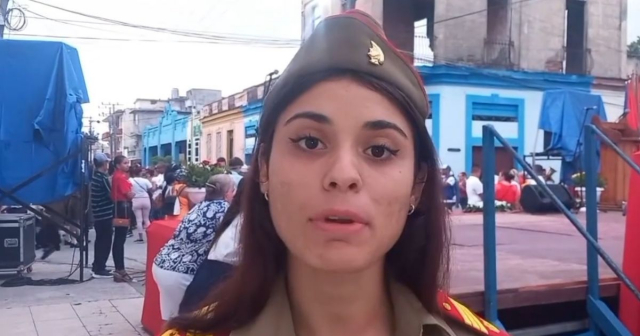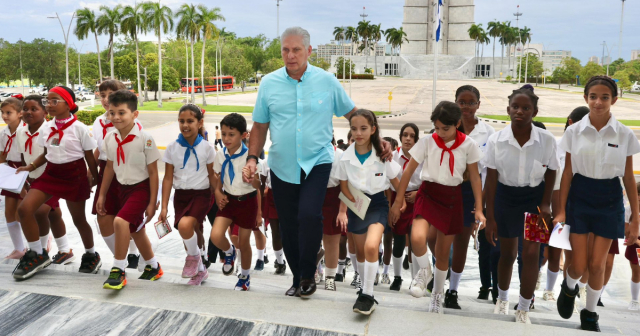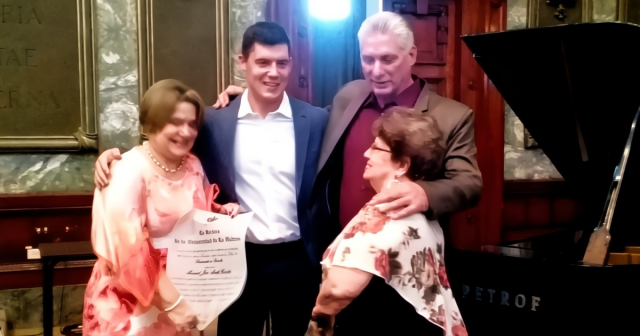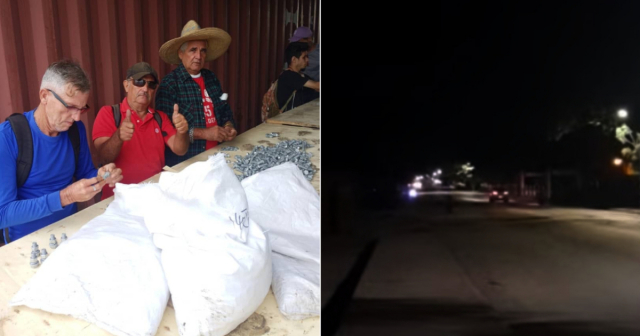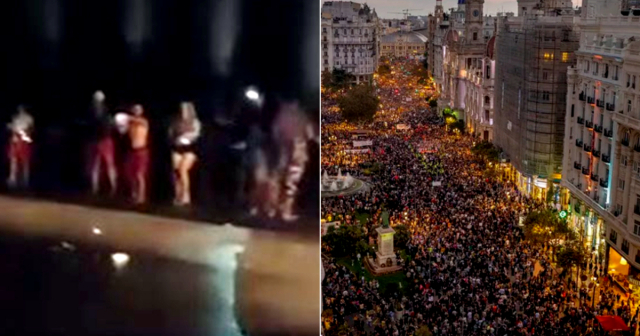This Monday marks the eighth anniversary of the death of dictator Fidel Castro, and Cuban leader Miguel Díaz-Canel seized the opportunity to commemorate the occasion by doing what he enjoys most as a bureaucrat in the Cuban regime: propaganda and indoctrination.
The "leader" of the so-called "continuity," and also the First Secretary of the Communist Party of Cuba, used his social media to pay tribute to the dictator with a series of slogans and empty phrases, accompanied by a video of his recent encounter with Cuban children at the Palace.
"Nobody should say he is not here because it would be a lie. #FidelLivesAmongUs. Even among children who were born after his departure. He, like Martí, is in every just idea and in every work of the Revolution. And he is in the heart of the Cuban people," said Díaz-Canel on X (formerly Twitter).
Acting as a spiritualist for the occasion, Dr. Díaz-Canel set aside the concerns and responsibilities surrounding his "Government Management System based on Science and Innovation" and brought out candles, aromatic cones, and a crystal ball to explain to innocent souls the mark of a demon in the nation's history, and what the path to tackle that cursed portent might be.
"I believe that the continuity of Fidel is not just mine; it belongs to all of us. It is mine, it is of all the comrades who are in positions of responsibility today, it is of the people, and it is of you," said the leader to the pioneers who visited him and asked how he felt about being "continuity."
Tearfully, Díaz-Canel revealed the first incantation to achieve that higher state of evil: “When we unfortunately had to acknowledge Fidel's physical absence, what did we say in those days and what do we continue to say now? I am Fidel! Therefore, each of us is Fidel; each of us has that commitment, each of us has exactly that continuity.”
Once the demon is summoned, a second step must be taken for it to take control of our actions and thoughts.
"Therefore, to truly be coherent and honest with what we propose as the conviction of 'being Fidel', the first step is to study and understand Fidel's thought, what Fidel wanted for Cuba, how he envisioned it, what he did for Cuba, and how he defended Cuba," noted the catechumen of fidelism.
Once those questions are answered, it is necessary to embrace idolatry and "be faithful to that legacy, to that way of thinking." According to Díaz-Canel, it is not advisable to "treat it as a dogma," but rather to "enrich that thought, adapt it to current conditions, and pass it on to new generations."
You can definitely see the master's influence in his words: Raúl Castro's "picking," like a laying on of hands, revealed to him that one had to be Fidel, "but not too much, man!"
"For example, when faced with complex situations, the first thing I always think is, what would Fidel do in a moment like this? And then I start to study, to seek out books, Fidel's speeches, and the actions taken in other times," explained the scholar of the work of the sorcerer who transformed gold into lead.
According to the reciter, who ranges from the apocryphal speech of Historia me Absolverá to the Sutra of the Moringa, this discipline leads to the understanding of “what can be done under the current conditions, what needs to be updated, and what should be done differently.”
"One of the things Fidel asked of us in his concept of revolution is that we change what must be changed," concluded the "leader of continuity"; that "figure" who, without slogans and without propaganda, would fall into silence, rendered unable to think.
Filed under:
